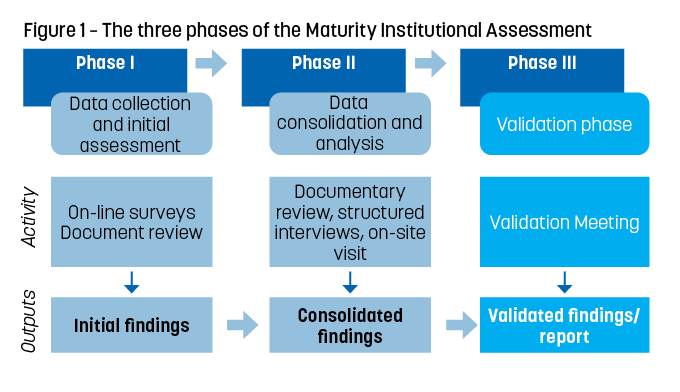The WCO COPES Programme aims to initiate a dialogue reflecting on the working methods used to combat fraud, from the identification of an offence to the storage of seized assets, including reporting, collecting and preserving evidence. It does not advocate a particular means of enforcing legislation or managing seizures, but presents a range of methods and practices currently used for investigations and prosecutions that is flexible enough to fit all existing administrative or legislative arrangements.
The name of the programme is the acronym of the first tool developed by the WCO in this area: the Compendium of Customs Operational Practices for Enforcement and Seizures. Training modules were later developed, COPES Expert Trainers were accredited and seminars organized to provide participants not only with practical tools for immediate use, but also with an appropriate platform for discussion in order to identify methods commensurate with specific local conditions.
The Compendium included a Checklist for Capacity Building Diagnostic Assessment, designed to assist Customs administrations and COPES experts to better understand the potential areas of further review and improvement. However, it soon became apparent that a more rigorous and comprehensive methodology was needed, whereby the beneficiary Customs administration would be fully engaged throughout the assessment and validate all findings. The new tool which was developed was named the Maturity Institutional Assessment tool and methodology in the area of Customs Enforcement.
It looks at five areas:
- Compliance management
- Intelligence
- Risk management
- Enforcement operations
- Investigations
Under each of these areas, the following dimensions are examined:
- Legal framework
- Procedural framework
- Cooperation and data sharing framework
- Organizational framework
- Human capital
- Infrastructure, equipment and technology
 The tool is accessible to Customs representatives only and is to be used within the framework of a specific project that involves the beneficiary, COPES accredited experts and a donor. The said experts provide detailed and practical instructions to facilitate its use and maximize its impact.
The tool is accessible to Customs representatives only and is to be used within the framework of a specific project that involves the beneficiary, COPES accredited experts and a donor. The said experts provide detailed and practical instructions to facilitate its use and maximize its impact.
Pakistan assessment exercise
In 2021, Pakistan Customs used the tool to carry out an assessment exercise with the help of the WCO Secretariat. It enabled it to identify strengths and areas of improvement in the area of enforcement, and to develop a Maturity Growth Plan to address the identified gaps.
It is worth mentioning that, since November 2010, the collection of taxes and excise has been brought within the remit of the Inland Revenue Service and the role of Pakistan Customs in combating fraud and crime has been considerably strengthened, with many powers once held by other services working at the borders transferred to the Administration. This change of focus in the scope of its tasks required Pakistan Customs to rethink the way it was structured and to ensure its staff had the right skills and know-how.
Since 2018, Pakistan Customs has benefited from the support of the Bureau of International Narcotics and Law Enforcement Affairs (INL) of the United States State Department to enhance its capacities. The INL has been funding the activities carried out with the WCO Secretariat under the COPES Programme, including the maturity level assessment.
Support requirements and procedures
To receive the support of the WCO Secretariat, Customs administrations should submit a written request. The Institutional Assessment Project can either be funded by the beneficiary administration itself or by a donor. Once funding is secured, the beneficiary will be asked to create a working group composed of experts in the relevant five areas mentioned above. Finally, this working group will work in partnership with designated COPES accredited experts. At the end of the assessment exercise, a comprehensive report will be provided to the beneficiary country. It will include recommendations and eventually a working plan, with targets to be reached and indicators.
More information
Copes@wcoomd.org
